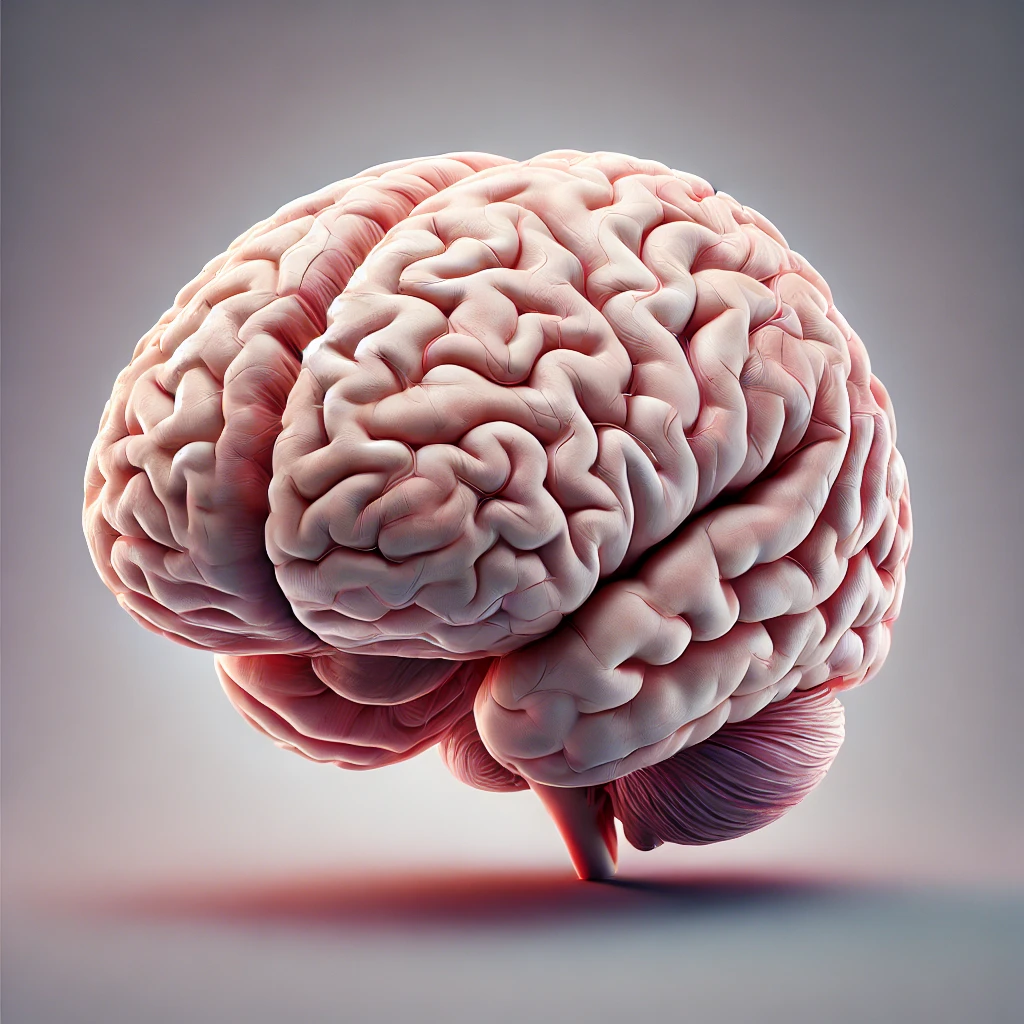
Understanding ADHD and Perfectionism: How they are connected
1. Understanding ADHD and Perfectionism
Perfectionism and ADHD often intersect, creating a complex dynamic that can be challenging to navigate. This guide explores the relationship between these conditions, how they interact, and strategies for managing them effectively. ADHD, a condition affecting both children and adults, often involves symptoms like attention difficulties and impulsivity. Perfectionism can exacerbate these issues, leading to anxiety and stress.
The Connection Between Perfectionism, Anxiety, and Depression
Perfectionism, anxiety, and depression are closely linked, often creating a cycle that exacerbates each condition. Here's how they interconnect:
- Perfectionism and Anxiety:
- Fear of Failure: Perfectionists often have an intense fear of making mistakes or not meeting their own high standards. This fear can lead to chronic anxiety as they constantly worry about potential failures.
- Overwhelming Pressure: The pressure to be perfect can cause significant stress and anxiety, especially when perfectionists set unrealistic goals that are difficult to achieve.
- Perfectionism and Depression:
- Chronic Dissatisfaction: Perfectionists are rarely satisfied with their achievements, as they always feel they could have done better. This chronic dissatisfaction can lead to feelings of worthlessness and low self-esteem, key features of depression.
- All-or-Nothing Thinking: This cognitive distortion, common in perfectionism, can lead to depression when individuals perceive themselves as complete failures after minor mistakes or setbacks.
- Anxiety and Depression:
- Comorbidity: Anxiety and depression often occur together, and perfectionism can trigger both. Anxiety may arise from the fear of not meeting high standards, while depression can result from the perceived failure to achieve them.
- Self-Criticism: Perfectionists often engage in harsh self-criticism, which can fuel both anxiety and depression. This negative self-talk can create a cycle where anxiety about failing to be perfect leads to depressive feelings of inadequacy and vice versa.
Overall, perfectionism can act as a catalyst, intensifying the symptoms of anxiety and depression and creating a challenging cycle to break. Recognizing and addressing perfectionistic tendencies is crucial in managing these mental health issues.
Who’s at Higher Risk of Perfectionism?
-
- Children & Adolescents: Frequent criticism or comparison during childhood increases perfectionism risk.
- Girls & Women with ADHD: Societal expectations can lead them to mask symptoms, driving perfectionistic behaviors.
- Anxiety/Depression: Co-occurring mental health conditions often heighten the need for control, leading to perfectionism.
- High Achievers: Competitive environments can push individuals to strive for unrealistic standards.
- Cultural Norms: Societal emphasis on success and productivity can foster perfectionistic tendencies.
- Family Dynamics: Perfectionistic parents or high expectations at home contribute to these traits.
2. The Link Between ADHD and Perfectionism
Is There a Link Between ADHD and Perfectionism? Perfectionism is often reported as the most common "cognitive distortion" among women with ADHD. On the surface, it might seem negative, but it functions as a protective coping mechanism. This link makes perfect sense as individuals with ADHD, particularly women and girls, often develop perfectionistic tendencies as a response to their challenges. As young girls, they may have learned to avoid shame, criticism, and failure by striving to meet high standards, leading to positive reinforcement. This coping mechanism, although protective, can lead to issues like anxiety, masking, and burnout.
How ADHD Contributes to Perfectionism:
ADHD contributes to perfectionism as ADHD people often experience challenges with executive functioning, such as difficulties with focus, organization, and time management. To compensate for these perceived shortcomings, they may develop perfectionistic tendencies as a coping mechanism. This behavior stems from a desire to avoid criticism or failure by overcompensating in their efforts. Additionally, societal expectations and the internalization of high standards can exacerbate these tendencies, causing ADHD individuals to strive for perfection as a way to manage their symptoms and gain approval.
3. Signs and Symptoms of Perfectionism
Perfectionism in ADHD women can manifest in two primary ways:
Front-End Perfectionism: This involves setting stringent rules or conditions that must be met before starting tasks. Examples include being unable to begin a creative project unless the entire house is organized or believing one can't start a fitness routine without perfect workout clothes and ideal conditions.
Back-End Perfectionism: This is characterized by an intense focus on correcting or improving tasks once they have begun. It can involve excessive time revising a project, fixating on minor details, or being unable to delegate tasks due to fear they won't meet high standards. This form is what we traditionally associate with doing things "perfectly."
- ✓] Excessive Concern Over Mistakes - Worrying unduly about making mistakes that might reflect poorly on one's abilities or character.
- [✓] High Personal Standards - Setting standards that are unreasonably high and difficult to meet, often leading to frustration.
- [✓] Excessive Need for Control - Needing to control all aspects of a task or project to ensure it meets one’s standards, often at the expense of efficiency.
- [✓] Overcommitment - Often committing to too many projects or responsibilities in the pursuit of achieving more.
- [✓] Procrastination or Avoidance - Delaying the start of tasks due to fear that the results will not be perfect.
- [✓] All-or-Nothing Thinking - Viewing outcomes as either perfect or a complete failure, with no middle ground.
- [✓] Never Feeling Satisfied - Rarely feeling satisfied with one’s achievements or work, often feeling like more could have been done.
- [✓] High Levels of Anxiety - Experiencing frequent or intense anxiety about meeting expectations and standards.
- [✓] Chronic Stress - Living with continuous stress due to the persistent pursuit of perfection.
- [✓] Rumination Over Small Flaws - Spending an inordinate amount of time obsessing over small imperfections others might not even notice.
- [✓] Reluctance to Delegate - Hesitating to delegate tasks to others for fear they won’t meet one's high standards.

4. Impact of Perfectionism on Daily Life
Perfectionism can have several negative impacts on individuals with ADHD, including:
- Anxiety and Depression: The constant pursuit of flawlessness creates immense pressure, leading to heightened anxiety and feelings of inadequacy. This pressure often results in procrastination, where individuals delay starting tasks out of fear they cannot meet their own high standards. Additionally, perfectionism can lead to burnout, as the relentless drive to perfection exhausts mental and emotional resources. It can also exacerbate ADHD symptoms, such as inattention, impulsivity, and hyperactivity, by diverting focus from the actual completion of tasks to the endless pursuit of perfection.
- Academic and Workplace Performance: In school or at work, perfectionism can cause procrastination and inefficiencies. Students or employees may delay starting assignments or projects because they fear they won't meet their own high standards, leading to a backlog of work and increased stress.
5. Strategies to Manage Perfectionism
To manage perfectionism, especially among ADHD women, several strategies can be employed:
- Embrace Self-Compassion: Recognize that perfectionistic tendencies may have developed as a protective measure against shame and criticism. Practicing self-compassion involves accepting mistakes as a natural part of life and not defining one's worth by levels of perfection.
- Foster Self-Awareness: Differentiate between helpful and restrictive rules. Assess whether hesitation to start tasks is due to genuine overwhelm or perfectionism. For front-end perfectionism, it’s essential to determine if adjustments or self-accommodation can help initiate tasks.
- Set Realistic Goals and Practice Self-Accommodation: Breaking tasks into smaller, manageable steps and adjusting environments to make tasks more accessible can help reduce perfectionism. This includes masking less and allowing for a more relaxed approach to task completion.
6. Seeking Professional Help for ADHD and Perfectionism
Therapy addresses the connection between ADHD and perfectionism by helping individuals understand the underlying causes of their perfectionistic tendencies and how these relate to their ADHD symptoms. For example, Cognitive Behavioral Therapy (CBT) can help individuals identify and challenge irrational beliefs about perfection. Therapy also provides strategies for managing stress, anxiety, and other emotional responses. Seeking help from a doctor or mental health professional is crucial for a proper diagnosis and treatment plan. Pediatric psychologists, family therapists, ADHD coaches, and support groups can also provide valuable support.
7. Supportive Therapies
Cognitive Behavioral Therapy (CBT): Effective when combined with compassion-focused treatment and respect for the lived experience of neurodivergent people. It's essential to work with a skilled therapist who understands masking and neurodivergence.
Mindfulness Practice: Helps individuals with ADHD combat perfectionism by promoting present-moment awareness and reducing the focus on achieving perfect outcomes. By practicing mindfulness, individuals learn to observe their thoughts and feelings without judgment, which can help them recognize and challenge perfectionistic thoughts. This practice encourages self-acceptance and reduces the pressure to meet unrealistic standards. Additionally, mindfulness can help manage anxiety and improve emotional regulation, making it easier for individuals to navigate the challenges associated with perfectionism and ADHD.
ADHD Medication: Can help manage some of the symptoms that contribute to perfectionistic behaviors, such as improving focus, reducing impulsivity, and enhancing executive functioning. By addressing these core symptoms, medication can help individuals better manage tasks and reduce the overwhelming need to compensate through perfectionism. However, the impact of medication on perfectionistic tendencies varies among individuals. For some, it may reduce the pressure to be perfect by making tasks more manageable, while for others, it may not significantly alter deep-seated perfectionistic beliefs.
8. Building Resilience and Self-Acceptance
Building resilience and self-acceptance is crucial in managing perfectionism. This involves:
- Encouraging a Growth Mindset: Emphasizing effort and learning over perfection helps individuals see mistakes as opportunities for growth.
- Modeling Healthy Behaviors: Demonstrating self-compassion and realistic goal-setting.
- Creating a Supportive Environment: Open communication and understanding help individuals feel safe to express their struggles and seek help when needed.
What Kind of Lifestyle Changes Can Support ADHD People with Perfectionism?
Perfectionism is a compensatory mechanism developed to protect individuals from feeling deficient. To help yourself feel different in a society that may not fully embrace and support neurodiversity, it’s essential to set up your life and surround yourself with people who celebrate neurodivergence. This support allows you to unmask and begin letting go of perfectionism.
9. Coping with Setbacks and Overcoming Failure
Perfectionism can often lead to a fear of failure, making it essential to develop coping strategies to deal with setbacks. This includes:
- Acknowledging Efforts: Focusing on what has been accomplished rather than what hasn't been perfect.
- Learning from Mistakes: Viewing setbacks as learning opportunities rather than failures.
- Reducing Self-Criticism: Practicing self-compassion and avoiding harsh self-judgment.

Potential Pitfalls to Be Aware
Several potential pitfalls exist when addressing perfectionism in individuals with ADHD:
-
- Counterproductive Cycles: Perfectionism can lead to procrastination, anxiety, depression, and rejection-sensitive dysphoria, restricting life experiences and disconnecting individuals from their values and strengths.
- Decision-Making Paralysis: The fear of making mistakes can cause paralysis in decision-making, emotional dysregulation, and avoidance behaviors, significantly diminishing the quality of life.
- Distinguishing Perfectionism from Accommodation: It's crucial to differentiate between perfectionism (both front-end and back-end) and the need for proper accommodation. While perfectionism can lead to unnecessary delays and stress, appropriate self-accommodation can help manage tasks more effectively. This is not often considered by professionals who are not neurodiverse affirming.
10. Living a More Balanced LIfe
Living a balanced life involves:
- Setting Realistic Expectations: Understanding that perfection is unattainable and accepting imperfections as part of the human experience.
- Prioritizing Self-Care: Engaging in activities that promote well-being and reduce stress, such as exercise, mindfulness, and hobbies.
- Seeking Support: Joining communities or support groups focusing on ADHD and perfectionism, engaging with resources like courses and workbooks, and seeking professional guidance when needed.
11. Parenting ADHD Children with Perfectionism
How Can Parents Be Aware of Perfectionism Developing in ADHD Children, Specifically Girls, and Help Support Them?
Catching perfectionism early is critical to avoiding these cycles in ADHD adults, particularly girls. Parents can help prevent perfectionism from developing in their children by being vigilant about signs such as excessive self-criticism, reluctance to start tasks without specific conditions, or spending too much time on a task due to fear of making mistakes. Open communication, understanding, and encouragement are crucial. Parents should foster self-compassion and resilience, challenge unrealistic standards, and promote a growth mindset.
How Can Parents Support Their Child with ADHD Who Struggles with Perfectionism?
Parents can support their child with ADHD who struggles with perfectionism by:
- Encouraging a Growth Mindset: Emphasizing effort and learning over perfection helps children see mistakes as opportunities for growth.
- Modeling Healthy Behaviors: Parents can model self-compassion and realistic goal-setting, demonstrating that imperfection is a natural part of life.
- Providing Positive Reinforcement: Recognizing and praising effort rather than just outcomes helps build confidence and reduces the fear of failure.
- Creating a Supportive Environment: Open communication and understanding help children feel safe to express their struggles and seek help when needed. Support can also be provided by pediatric psychologists, family therapists, ADHD coaches, and support groups.
Additional Resources
Studies on the Link Between ADHD and Perfectionism
Research studies can provide deeper insights into the connection between ADHD and perfectionism, helping to understand the prevalence, types, assessment, and treatment of related mental challenges. Access these studies through academic databases like PubMed, Google Scholar, or specific journal websites.
Two Specific Studies:
Research studies can be found through:
Perfectionism and ADHD What is the link
Procrastination, perfectionism, and other work-related mental problems: prevalence, types, assessment, and treatment—a scoping review
Resources can be found through:
-
Online Platforms: Websites like CHADD (Children and Adults with Attention-Deficit/Hyperactivity Disorder) and ADDitude Magazine provide articles, videos, and guides on ADHD and perfectionism.
-
Books: Books such as "Driven to Distraction" by Dr. Edward M. Hallowell and "The Gift of Adult ADD" by Lara Honos-Webb cover perfectionism in the context of ADHD.
-
Psychology Today: Specialized professionals can provide assessments and treatment plans.
-
Support Groups: Local community centers or online platforms like Meetup.
-
Self-Help Books: Books like "The ADHD Workbook for Adults" by Dr. Ari Tuckman.
-
Books and Memoirs: Personal accounts like "I'll be just five more minutes" by Emily Farris
-
Podcasts and Videos: A list of podcasts here
Online Forums or Communities for Discussing ADHD and Perfectionism?
Online forums and communities can be found on:
-
Reddit: Subreddits



